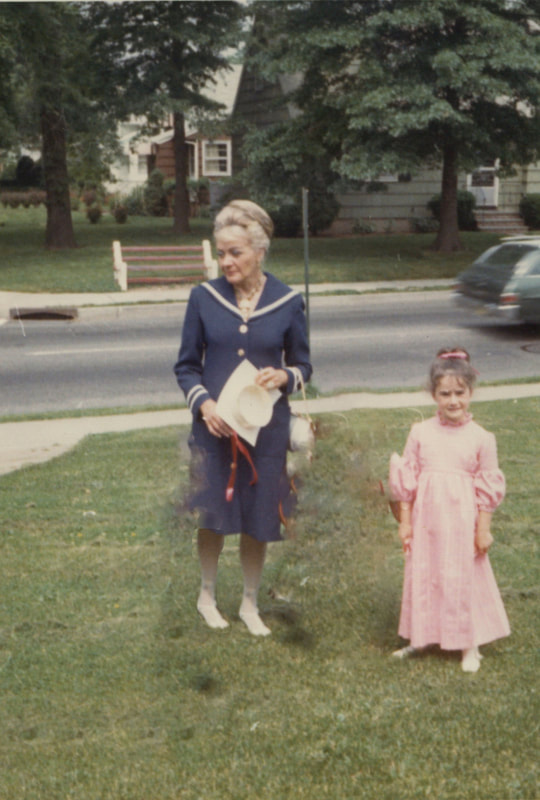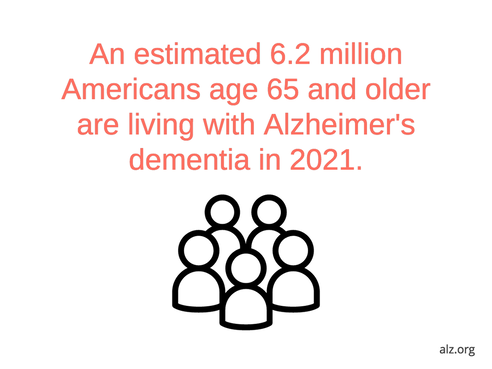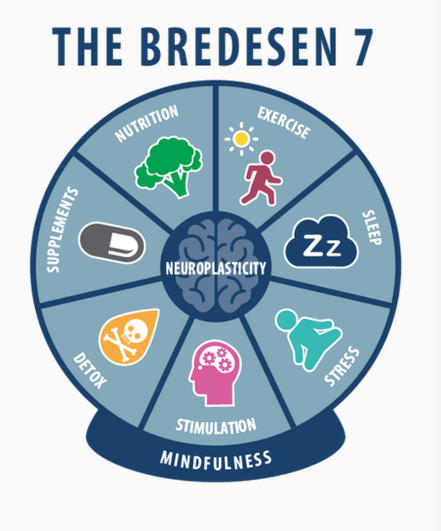|
The prevalence of Alzheimer's Disease among women is startling. Let's explore a collection of lifestyle interventions to achieve optimal brain health with "The End of Alzheimer's Program: The Bredesen Protocol." Why I was drawn to certification through the Functional Medicine Coaching Academy with a specialty in Alzheimer’s prevention. "Samantha, let me count your freckles," my grandmother would say to me. She was 80 years old, living in a memory care Alzheimer's assisted living facility. I was in my 30’s then, and she hadn't counted my freckles since I was a young girl. But that's all she wanted to do, and so I let her. She lived the end of her life in a shroud of darkened reality, with memories that stretched into her past. It was crushing to watch her without knowledge about how we could help. Several decades later, as I entered my fifties, I was stressed, run down from a busy job and a complex home life. My periods slowed down, my weight started to creep up, my brain didn’t seem as sharp and focused, and I suffered from crippling anxiety attacks. I knew that my family history made me more susceptible to the same fate as my grandmother. I was determined to enter menopause with vitality and energy, and I cast about looking for solutions. A dear friend introduced me to Functional Medicine, and my new doctor sent me for several lab tests that showed inflammation in my gut, gluten sensitivity, Hashimoto’s thyroid disease, and autoimmune antibodies. We discovered the root cause of my inflammation and I removed the food triggers that had caused the brain fog, anxiety, and weight gain. Slowly, I worked my way back to health and wellness, and my symptoms began to improve. This journey led me to want to help others, and I became certified at the Functional Medicine Coaching Academy with a specialty in Alzheimer’s prevention. Alzheimer's Disease affects close to 6 million people in the United States, and two-thirds of those diagnosed are women. (1) Further troubling, women in their 60s are about twice as likely to develop Alzheimer’s over the rest of their lives as they are to develop breast cancer. (2) Alzheimer’s is now the third leading cause of death in the United States, and while other diseases like heart disease and stroke are on the decline, Alzheimer’s Disease is rising. The prevalence of this disease among women is startling, and research is now evolving that suggests that male and female brains age differently, in part, because of the changes in hormonal quality and quantity. (3) So, what is the difference between men’s and women’s brains? In part, that difference can be found in the pituitary gland, a small endocrine organ that controls the functions in the body involved in hormone production and the secretion of hormones. Hormones keep our brains energized and youthful, our bones strong, our gut active, and our sex life vital. Hormones influence every aspect of our body, and when they’re out of whack, you’ll start to feel it everywhere, from your joints to your thoughts. It seems that, as we approach midlife and point toward menopause, the hormonal changes which trigger hot flashes, night sweats, disturbed sleep, and memory loss originate in the brain itself—although all of those symptoms were previously thought to originate in our ovaries and the changing reproductive system. The ebb and fall in hormones cause the loss of a key protective element in the female brain, weakening our neurons and making our brains more vulnerable to aging and disease. Composed mostly of fat and powered by electricity, our brain processes thoughts, feelings, perceptions, and sensations, all while making sure you’re breathing, your heart is beating, you are digesting, and your hormones are active. While all hormones are important in this midlife process, there’s one—estrogen—that is considered to be the main driver in women’s brain health. (4) Estrogen keeps brain cells active and healthy and is responsible for brain activity in the regions that regulate memory, attention, and planning. It’s also “neuro-protective”—playing an important role in boosting the immune system and protecting our brains. But, interestingly, Alzheimer’s doesn’t just appear one day; the brain changes that lead to the disease begin about 20 years before a diagnosis and well before the first symptom. That’s great news! There is a lot of time to do something about this progression during the years before we reach menopause to intervene with strategies to reduce or prevent that risk. After seeing the darkness that my grandmother experienced in her later years, I sought out ways to learn about Alzheimer’s and find ways to support women like my grandmother--and myself. Through my health coaching training at the Functional Medicine Coaching Academy, I discovered the Bredesen Protocol. (5) Developed by and named after Dr. Dale Bredesen, an internationally recognized expert in the mechanisms of neurodegenerative diseases, this protocol is designed to reverse cognitive decline and prevent Alzheimer’s using cognitive-boosting nutritional support, exercise, meditative practices, brain game training, and restorative sleep. Dr. Bredesen’s framework is predicated on the notion that Alzheimer’s is not a simple one-cause disease, and that’s why treatment is so complex and the search for a single-drug (monotherapy) treatment has thus far failed. His approach is personalized, looking at the whole body for potential contributors. Doctors trained in the Bredesen Protocol will run blood tests to look at levels of inflammation, insulin resistance, nutrients, hormones, toxins, and perform other “cognoscopy” tests such as the Montreal Cognitive Assessment (MoCA). Once a plan is developed by the practitioner, health coaches play a large role in helping clients implement the Bredesen Protocol. There is much we can do to support clients in creating a positive environment for learning about and addressing cognitive health. The Bredesen Protocol focuses on seven key areas to optimize brain health and the wheel is strategically placed upon a base of mindfulness emphasizing the importance of being present and authentically whole. Health coaches trained in the Bredesen Protocol walk along the path with clients to support them every step of the way. 1. Nutrition: the Bredsen Protocol recommends a “Keto-FLEX 12/3” approach which consists of a mildly ketogenic plant-rich, highly nutritive diet combined with nightly fasting of a minimum of 12 hours with at least 3 hours before bed. Putting out the fire of inflammation is a key feature of this method with the goal to reduce high insulin levels to restore or support healthy cognition. For example, research has shown that consuming mixed berries results in maintaining or improving cognitive performance and they play an important role in helping the cells respond to inflammation. Chocolate also has a significant effect on elevating our mood, and the polyphenols and flavonols in the cacao plant help protect both the brain and our cardiovascular system. (Yay, chocolate!) 2. Exercise: joyful movement is an essential part of the Bredesen Protocol to reverse cognitive decline. Our bodies love movement--and our longevity depends on it! Find what gives you the greatest happiness with your movement and stick to a routine. At least 150 minutes per week of moderate movement, broken into 3-5 sessions of activity is recommended. Learn more about the importance of exercise for brain health. 3. Sleep: we recommend 7 to 8 hours of quality restorative sleep every night — without noise, lights, or Wi-Fi. To support your sleep, it’s important to cut out stimulants such as caffeine early in the day; avoiding sweet foods and alcohol, especially after dinner; make sure you are sleeping in a dark cool room with no distractions; and invest in a good comfortable mattress, unplugging electronics at least 2 hours before bedtime. 4. Stress: The Bredesen Protocol recommends reducing chronic, unresolved, or severe stress as it may be a key contributor to cognitive decline. Continuous stress—which we’ve been living under for the past year during the pandemic at extreme levels—creates chronically high levels of cortisol and adrenaline. These high levels of stress affect our immune system sending signals to respond with alarm, resulting in inflammation. When levels of cortisol are too high, too low, or fluctuate in unhealthy ways, you might feel wired, anxious, sleepless, and jumpy, exhausted, foggy, and unfocused. Something you can try today is to harness the power of your breath to reduce stress. 5. Brain Stimulation: The Bredesen Protocol recommends brain training to remain mentally active with social and mental stimuli. Learning a new language or a musical instrument, or playing an interactive brain stimulation game like Brain HQ are all ways that you can expand your cognitive abilities and keep your brain stimulated. 6. Detox: The Bredesen Protocol recommends detailed lab testing to examine the extent to which your body is storing toxins that may contribute to brain decline. Ensure that the air you breathe, the water you drink, the home you live in, the food you eat, and the toiletries, cosmetics, and cleaning supplies you use are as toxin-free as possible. 7. Supplements: while health coaches do not prescribe supplements, the Bredesen Protocol recommends detailed lab analysis into nutritional levels so that any deficiencies can be augmented to optimize brain health. Consult with your practitioner trained in the Bredesen Protocol for guidance on appropriate supplementation. Health coaches are important partners in helping clients to administer the Bredesen Protocol  Coaches can help by offering accountability in the behavioral changes that are needed to support this work, as well as education when needed. For each woman who wishes to address these issues, the journey will be personalized, and having a “guide on the side” to help optimize the recommendations is key. Adopting these lifestyle practices, personalized to you and your specific issues and conditions, can prevent cognitive decline in women who sense that their brain health is diminishing. Everyone can and should optimize wellness as we enter midlife enjoying vitality and essential wholeness. This is your time to flourish and celebrate! I am here to help. Getting a handle on my health and my family history helps me empathize with you and your health challenges. If you want to learn more, book a free call to discuss how we can design your personal health goals and co-create a plan for achieving those goals. Follow me on Instagram @essential.wholeness for tips on keeping your brain healthy! You are also invited to join me on for an upcoming interactive talk where I’ll reveal factors that can affect your sleep and share a variety of practices that will help improve your sleep quality. “Why Can’t We Sleep?” April 9, 12:00-12:45pm ET Sign up here For NBC-HWC's interested in working with the Bredesen Protocol, you can earn 36 CEU’s by completing the official training of the Bredesen Protocol and ReCODE 2.0 for Health Coaches, a comprehensive protocol for the reversal of the cognitive decline in individuals with early Alzheimer’s disease, MCI, SCI, or those at risk for cognitive decline. For additional health & wellness coaches ready to support you on your journey, visit our directory and reach out to one who looks like a good fit for you! References
(1) https://www.alz.org/alzheimers-dementia/facts-figures (2) https://nwhn.org/women-and-alzheimers-disease-a-global-epidemic/ (3) Dr. Lisa Mosconi, The XX Brain: The Groundbreaking Science Empowering Women to Maximize Cognitive Health and Prevent Alzheimer’s Disease (New York: Avery, an imprint of Penguin Random House, 2020) (4) Dr. Avrum Bluming and Dr. Carol Tavris, Estrogen Matters: Why Taking Hormones in Menopause Can Improve Women’s Well-Being and Lengthen Their Lives- Without Raising the Risk of Breast Cancer, (New York: Little, Brown Spark, 2018) (5) Dr. Dale Bredesen, The End of Alzheimer’s Program: The First Protocol to Enhance Cognition and Reverse Cognitive Decline At Any Age (New York: Avery, an imprint of Penguin Random House, 2020) and visit: https://www.apollohealthco.com/dr-bredesen/
10 Comments
Jeralyn
3/24/2021 03:34:19 pm
Thank you for this Samantha! Having watched my 'other mother' suffer from dementia I am super aware at the impact it can have on a family, so I appreciate you sharing these key factors in keeping our brain and body healthy!
Reply
Samantha
3/26/2021 12:44:41 pm
Thanks, Jeralyn! It's such a difficult disease, but there's so much we can do to prevent it and stay healthy!
Reply
Audrey Miner
3/26/2021 05:06:30 pm
Great blog Samantha! I am overwhelmed with the number of 6.2 million Americans are living right now with Alzheimers. I also did not realize more women are diagnosed with it. Thank you for this very educational information Samantha!
Reply
Samantha
3/27/2021 11:59:02 am
Yes! These are difficult statistics, but there's so much we can do to prevent and help! 3/26/2021 09:34:15 am
Thank you for this great article, Samantha! I am very interested in the training program and will follow up accordingly. Alzheimer's is a disease we need to be able to eliminate and I fully believe that with the help of health coaches and this kind of protocol, we can certainly make it less prevalent!
Reply
Samantha
3/26/2021 12:43:38 pm
Thanks, Heidi! I'm happy to share more about the Coaches training! And I listened to your Facebook Live today with Caitlin, and you have such an interesting and courageous story! Hope to meet you soon!
Reply
4/1/2021 05:01:02 am
This is an excellent article, Samantha! I've been saddened seeing friends and their families deal with dementia, so I'm glad to know this kind of help is available. I appreciate being made aware of the Bredesen Protocol - it gives me hope!
Reply
Samantha
4/6/2021 06:06:01 pm
Yes, Kathy! There’s lots of hope for this disease!
Reply
4/6/2021 06:02:21 pm
Samantha,
Reply
Samantha
4/6/2021 06:08:30 pm
Thanks, Victor! I’m so glad you enjoyed it. There’s so much we can do to live our lives fully! It’s great that we share a passion for SLEEP, one of the pillars of the Bredesen 7!
Reply
Leave a Reply. |
take control of your health.Connect with a board certified coach to help you succeed with health changes. COACHES:
|






